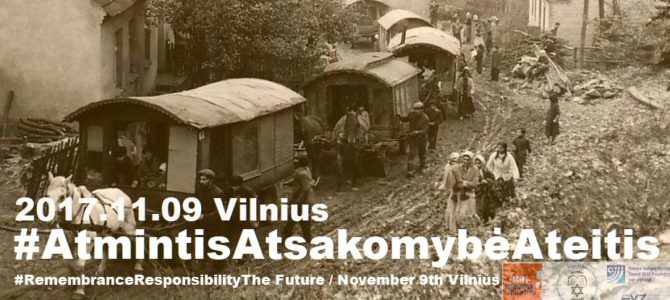
Introduction
Dovilė Budrytė, Ph.D., Professor of Political Science ![]()
Georgia Gwinnett College, Georgia, USA
Writing about memory in Eastern Europe, Alexander Etkind observed in his book Warped Mourning that various groups are likely to cultivate different versions of the past, define their friends and foes, thus creating separate memory communities that are likely to engage in memory wars. Etkind’s observation raises several fundamental questions about historical memory in Eastern Europe: Can a major historical trauma start uniting various groups to combat current expressions of prejudice and violence? How should major historical traumas be commemorated so that memory wars are avoided? Are there proper ways to remember horrendous events to make sure that history does not repeat itself?
Of course, there are no easy answers to these questions. In fact, some scholars would probably even question the whole concept of learning from the past, questioning whether studying and commemorating painful historical events can yield useful lessons for current politics. Even such pessimistic accounts, however, cannot discount the power of “multidirectional historical memory.” As envisioned by Michael Rothberg, who invented this term, such memory is not competitive. It is not a zero sum political game. It is dynamic and fluid, subject to ongoing negotiations and discussions by various groups; it is open to borrowing. It is productive, not paralyzing. It is open, not closed. Rothberg believes that it is possible to use the presence of widespread Holocaust consciousness as a way to articulate a platform to fight various forms of racism, past and present. Thus, Holocaust memory, which is embraced by various groups and individuals, can be an inspiration for fruitful exchanges and perhaps even ways to combat various expressions of racism.
Drawing on Kristallnacht, one of the best known images associated with anti-Semitic violence which preceded the Holocaust, the conference #RememberanceResponsibilityFuture will attempt to do just that. The major goal of this conference is to come up with viable recommendations about how to combat anti-Semitism and prejudice against Roma in Lithuania. This conference will highlight the intersections of historical memory and current prejudices in Lithuania, attempting to challenge the borders of what Etkind has called memory communities and revealing some less known stories of the Holocaust. Specifically, the Roma Holocaust experiences in Lithuania will be part of the discussions. These experiences, horrid as they are, are still little known and little discussed in Lithuania and abroad. Also known as Samudaripen, “mass killing” in the Roma language, and Pharrajimos, “tearing up, slicing up or desecration” in the Roma language, these experiences have not yet become a constituent part of Holocaust memory in Lithuania. Revealing these experiences may be a first step toward highlighting prejudices against Roma today. As in the past, today in Lithuania the Roma community is still marginalized and associated with criminality. Learning about the Holocaust and about the criminalization of various communities can definitely help us to understand the dangerous potential of stereotyping in today’s world.
Furthermore, exploring various intersections between the historical memory of the Holocaust and today’s politics may help us to understand the complexities of various forms of prejudice, including antisemitism and xenophobia in Lithuania and beyond. Although there have recently been positive developments in increasing awareness about the Holocaust in Lithuania, a lot of work remains to be done. There is still widespread resistance to openly confronting uncomfortable historical truths about the Holocaust, including various forms of Lithuanian participation in the Holocaust. There are still powerful impulses to defend a whitewashed memory of Lithuania’s painful past. Fighting those impulses and attempting to tell honest stories about the past is part of successful tolerance education, which is necessary for combating anti-Semitism, prejudice against Roma and xenophobia in today’s turbulent world. This is probably a difficult but necessary first step in defending human rights and attempting to prevent other occurrences of Kristallnacht-like events. I believe that the #RememberanceResponsibilityFuture conference will be an important step in the right direction.
PROGRAM:


